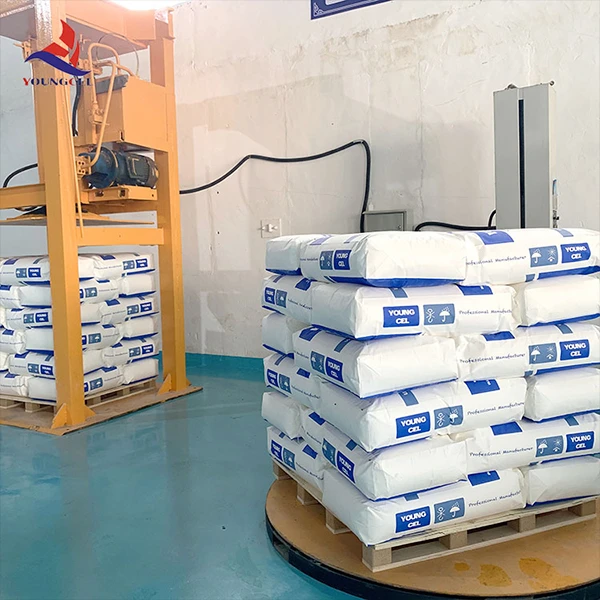The Importance of Adhesive Chemicals in Modern Industries
Adhesive chemicals play a pivotal role in various industries, ranging from manufacturing and construction to automotive and electronics. These substances, which are used to bond materials together, have evolved significantly over the years, leading to the development of advanced formulations that cater to specific applications and performance requirements. In this article, we will explore the types of adhesive chemicals, their applications, and the benefits they bring to different sectors.
Understanding Adhesive Chemicals
Adhesive chemicals are substances that can bond two or more surfaces together through physical or chemical means. They can be classified into several categories based on their composition and the bonding mechanism they employ. Common types of adhesive chemicals include
1. Polymer-based Adhesives These are among the most widely used adhesives, comprising materials like polyvinyl acetate (PVA), polyurethane, and epoxy. They offer excellent flexibility and strength, making them suitable for a variety of applications.
2. Cement-based Adhesives Primarily used in the construction industry, these adhesives are formulated to bond tiles, stones, and other construction materials. They provide robust adhesion and, in many cases, water resistance.
3. Hot Melt Adhesives These are thermoplastic adhesives that are applied in a molten state before solidifying upon cooling. They are commonly used in packaging, woodworking, and paper applications due to their quick bonding capabilities.
4. Pressure-sensitive Adhesives (PSAs) These adhesives bond to surfaces upon the application of light pressure, without the need for heat or solvents. They are widely used in tapes, labels, and medical applications.
5. Structural Adhesives Often used in demanding applications, structural adhesives such as methacrylate and epoxy are designed to provide high strength and durability, making them suitable for aerospace and automotive industries.
Applications of Adhesive Chemicals
The versatility of adhesive chemicals allows them to be utilized across a broad spectrum of industries
- Manufacturing Adhesives are critical in assembling products, from household items to complex machinery
. They enable lighter constructions and provide design flexibility, which is often not possible with traditional fastening methods.adhesive chemical

- Automotive In the automotive industry, adhesive chemicals are essential for bonding components and ensuring safety. Advanced adhesives are used for structural integrity in car manufacturing, helping to reduce weight and enhance fuel efficiency without compromising on safety.
- Electronics Adhesive chemicals are crucial in electronics for binding components, encapsulating sensitive parts, and providing insulating properties. They ensure the reliability and longevity of electronic devices by protecting against environmental factors.
- Construction In the construction sector, adhesives are used for flooring, tiling, and joining materials like metal and wood. They provide strong bonds that withstand heavy loads and environmental stressors, contributing to the durability of structures.
- Medical Devices The medical industry also benefits from adhesive chemicals, which are used in manufacturing devices, securing medical tapes, and fabricating bio-compatible components that are essential for patient safety.
Benefits of Using Adhesive Chemicals
The use of adhesive chemicals brings numerous advantages
1. Improved Design Flexibility Adhesives allow for the bonding of dissimilar materials, enabling innovative designs in product development.
2. Weight Reduction By eliminating the need for traditional fasteners like screws and bolts, adhesive bonding can significantly reduce the weight of products, which is particularly beneficial in industries like aerospace and automotive.
3. Enhanced Performance Many adhesive chemicals provide superior bonding strength, and resistance to environmental factors such as moisture, temperature fluctuations, and chemicals.
4. Cost-effectiveness Adhesives can simplify manufacturing processes, reducing labor costs and production times, while often providing a more durable bond than mechanical fasteners.
5. Sustainability Many modern adhesive formulations are designed to be eco-friendly, reducing the environmental impact of manufacturing processes and contributing to greener solutions.
In conclusion, adhesive chemicals are an integral part of modern manufacturing and construction, offering versatile, efficient, and reliable bonding solutions across a myriad of applications. As technology continues to advance, the development of new adhesive formulations will undoubtedly enhance their performance and utility, paving the way for even more innovative applications in the years to come.
-
Rdp Powder: Key Considerations for Wholesalers in the Building Materials IndustryNewsJul.08,2025
-
Key Considerations for Wholesalers: Navigating the World of Hpmc - Based ProductsNewsJul.08,2025
-
Hpmc Detergent: Key Considerations for WholesalersNewsJul.08,2025
-
Key Considerations for Wholesalers: China Hpmc For Tile Adhesive, Coating Additives, Concrete Additives, and MoreNewsJul.08,2025
-
Crucial Considerations for Wholesalers: Navigating the World of Construction MaterialsNewsJul.08,2025
-
Key Considerations for Wholesalers Sourcing Additive For Cement, Additive For Concrete, Additive For Putty from Additive Manufacturer Shijiazhuang Gaocheng District Yongfeng Cellulose Co., Ltd.NewsJul.08,2025




